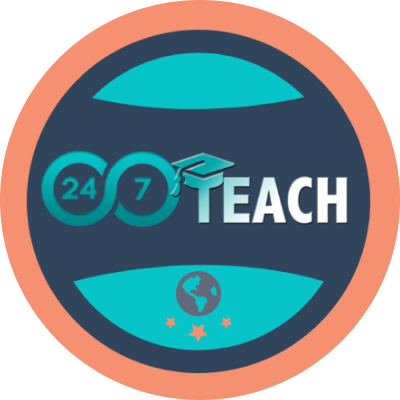Project Based Learning - Why is it Important to our school... Part 1
The 247 Learning Academy uses Project Based Learning (PBL) as a central organizing principle for our teaching and learning. Our commitment to projects is based on the outcomes we plan to see in our students, who, over time, develop the ability to take on increasingly challenging tasks. This pedagogy, we believe, closely mirrors the expectations, demands, and responsibilities required to engage and succeed in a fast-changing world. The Academy develops projects that require students to think across academic disciplines, collaborate with each other, develop executive function habits as well as academic skills, and which always end with something being created, completed, and celebrated. If project-based learning is so effective, why don’t more schools and teachers implement PBL as a part of their regular practice?
For the past few years, the Curriculum and School Design teams of the 247 Learning Academy have been looking at many questions related to PBL. What is the proper balance between traditional content and experiential learning? How many projects can students effectively work on at one time? How can a teacher manage a classroom where groups of students may be taking their learning in different directions? What kind of daily, weekly, and yearly schedules best support PBL? Many of the answers to these questions are reflected in the practices and methods developed by the Learning Academy (check out our website for more information about the unique nature of our school). One question, however, has presented us with an usually deep and intertwined challenge that we have been untangling during this academic year: how do teachers assess and give feedback to student’s work on projects?
The more we engage students in meaningful, authentic, and challenging projects, the less relevant traditional assessments (tests, essays, grades, etc.) become. For instance, this year students at the Academy worked to build a greenhouse in order to grow vegetables for a “Homemade Salsa” company they wanted to start. This project grew out of an earlier project that introduced students to the ideas of entrepreneurialism. Over the course of the year, students had to learn to develop budgets, build a greenhouse, use spreadsheets, select and grow crops, write a business plan, do some marketing, hone their cooking skills, raise capital, and complete significant amounts of research into a range of topics related to business, health codes, market research, etc. Students also learned, in a deep and lifelong way, that success and failure are not the same as grades on a test; in fact, failure, in the context of a project, is simply another learning opportunity. In life, what we do with failure (not achieving a goal/not completing a project) shapes how we learn and grow and succeed. But how can a teacher “grade” a project such as this? How can she assess student’s work if they are all doing different parts of the project? How do you track all the learning that is taking place over the course of a project that may take months to complete?
While doing projects inherently provides valuable feedback to students, the Learning Academy is also responsible for assessing learning across a spectrum of metrics, including traditional academic subjects. To this end, we have been working on a software platform dedicated to Project Based Learning. We recognized that one of the barriers to implementing PBL in classrooms is the difficult task of evaluating and assessing projects in a comprehensive, data-driven, and timely manner so that students (and their families) can see what learning is taking place and how students are developing skills through their engagement with these projects. One of the exciting features of this software platform is the ability to create rubric-based grading that provides a flexible, customizable tool for assessing projects. We’ve been busy creating rubrics that map to state educational standards, common core standards, and a group of skills (often called “21st-century skills”) related to communication, collaboration, organization, presentation, technology use, and other hard-to-measure metrics.
In addition to this assessment module, we’ve been working on a set of common principles that form the essential academic core of a good learning project. As we applied these principles to our projects, what emerged was an approach to PBL that allows anyone interested in using this pedagogy a method of developing, implementing, and assessing projects in “real time.” That is, the software platform integrates standards-based assessment into project-based learning in a way that provides critical, timely, and comprehensive feedback to students. We have spent over two years developing this platform, and we are now using it to create, implement, and assess projects at the Learning Academy. We plan to make this platform available to other teachers and students so we can learn more about the challenges of implementing PBL in classrooms around the world. We believe that technology has an important role to play in facilitating project-based learning in classrooms… now it is time to see if this idea can work in practice. If you’re interested in this kind of teaching and learning and would like to try our PBL platform, click here to register for a demonstration and training session with this software.


